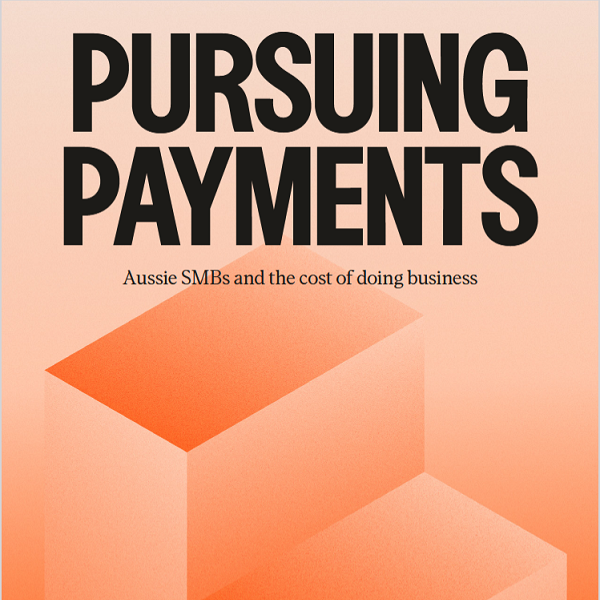
New GoCardless ‘Pursuing Payments’ report shows anxious SMBs are grappling with late payments
GoCardless, the bank payments company, has launched its new ‘Pursuing Payments’ report, revealing the impact the ongoing cost of living crunch is having on the cashflow security of small and medium businesses (SMB) in Australia.
The Pursuing Payments report, surveying more than 500 Australian small and medium-sized business owners and primary decision-makers in the private sector, revealed that the cost of living crisis, among other factors, has impacted business operations across Australia, with 55% of business leaders worried that the number of late-paying customers will increase in the next 12 months. This is a major concern, given that 50% of respondents admitted they avoid awkward money conversations with their customers.
Additionally, 86% of respondents who have avoided money conversations with customers in the past 12 months say there has been some impact from avoiding such conversations. 19% of respondents estimate their business loses between $6,000 and $30,000 from late payments annually.
Millennial business leaders, women more uncomfortable chasing and discussing payments
Millennials are more than twice as likely as Baby Boomers to agree that they’d feel uncomfortable asking customers for Payment (42% compared to 20%), suggesting a generational gap exists regarding how business leaders operate and interact with customers.
When it comes to feeling ‘awkward’ about money, millennials were also significantly overrepresented in the findings, with three in five (62%) of millennial business leaders agreeing they’d feel uncomfortable chasing customers for late payments, compared to 40% of Gen X and 36% of Baby Boomers.
Half of all millennial business leaders also agree they now find it harder to talk about money with customers than before the rise in the cost of living. 70% of millennials are also concerned the problem of late-paying customers is only set to worsen this year as the cost of living rises.
The data also reveals a gender gap in payments confidence, with 29% of women agreeing they’d feel uncomfortable asking customers for payment, this rises to almost half (46%) when it comes to chasing late payments. However, only 26% of men feel uncomfortable asking for payments and 40% share this experience chasing payments.
Stress and operating costs push business leaders to chase late payments
According to respondents who have avoided money conversations, this has resulted in many negative impacts for businesses and their leaders, including:
- increased stress for business leaders personally (43%)
- increased stress at work (37%)
- their business being paid late (36%)
- financial losses for their business (31%)
Inversely, the top reasons cited by businesses for being more likely now to have a conversation about late payments with customers compared to last year include:
- operating costs for businesses rising making payments more urgent (55%)
- the realisation customers weren’t put off by the conversation (44%)
- being fed up with not receiving what they were owed (34%)
Luke Fossett, General Manager at GoCardless said, “Despite some optimism emerging late payments will continue to cause a cashflow crunch for already struggling SMBs in 2024 – businesses need to acknowledge this and adapt quickly to stay on top.”
“For those wishing to avoid more uncomfortable money conversations, there are practical solutions, such as avoiding payment options with high failure rates, automating follow-ups on unpaid invoices and offering payment methods that reduce the onus on your customers such as Direct Debit or PayTo, which automatically pull money from a customer’s bank account. For recurring payments, all they need to do is set up the payment once and then forget about it.”
Seeking solutions to the payment nightmare
The Pursuing Payments report reveals that among those who say they would avoid talking about money with their customers, Millennials and Gen X are at least seven times as likely as Baby Boomers to admit they wouldn’t know how to broach late payments with customers.
Those millennials who say they are now more likely to have conversations about late payments with their customers compared to last year, were also roughly twice as likely as Gen X and Baby Boomers to reason that they’ve either found an effective way to chase payments or received support or training to feel more confident to ask for late payments.
Millennials and Gen X (85% and 68%, respectively) are also more likely than Baby Boomers (51%) to be interested in introducing technology – such as automated invoicing, PayTo, or payment platforms to get paid more quickly.
GoCardless customer and owner of Melbourne-based Dukes Gym, Jonathan Quieros, was surprised to hear that 62% of his fellow Millennials are uncomfortable chasing late payments, stating, “I think it comes with experience. If you’re being clear and transparent with what you’re doing, then it’s not rude. It’s just like you wouldn’t go to a restaurant, eat the food and then be surprised when you’re asked to pay.”
“I think the reason that I feel like that is our charges are transparent, upfront, clear, and easy to understand from the very start. We try and make it so there are no options for misconceptions or misunderstandings.”
Download the Pursuing Payments report here


